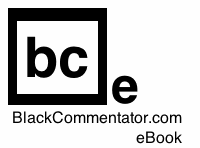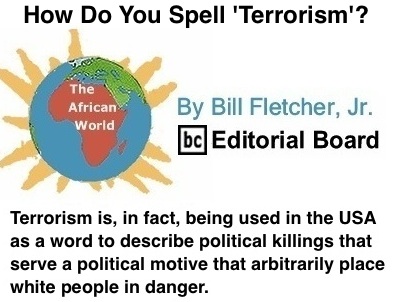




The
bombings in Boston left me with a feeling of having been kicked in the
stomach. They represented an atrocity. And in the immediate
aftermath I kept thinking about not only the actual victims of the
bombings but also my friends in the Boston area who could have become
victims of, if not that bombing, further bombings.
The killing of one suspect and the apprehending of the second,
therefore, was satisfying to many people, affected as we were not only
by the brutality of the killings and woundings, but as well by the
arbitrariness associated with the bombings.
Until the identification of the suspects, there were multiple
discussions of which I was part where there was speculation as to the
identity of the murderers. In virtually every discussion at least
one person said the same thing: "...I hope that they were white
supremacists because if they were foreign-born, there will be a racist
and anti-foreign reaction..." And so, for the last week there
have been some interesting exchanges about just that question.
The identity of the suspects as Chechens complicates reactions
since they are generally classified as "white" when they come to the
USA but they are also, in his case, Muslim. Ugh, amazing how
white supremacy makes everything so difficult!
There remains this open question - if not open wound - as to
how we, in the USA, understand terrorism. I do not mean the
question of whether President Obama should have used the word
"terrorism" in describing the Boston bombing - a reference that brings
with it certain legal implications - but rather how regular people
understand terrorism.
The BC Cover Story
this week is a commentary on just this question, focusing on the
international implications. The other side of the coin is domestic.
Specifically, terrorism is, in fact, being used in the USA as a word to
describe political killings that serve a political motive that
arbitrarily place white people in danger. Terrorism, though
having no official international definition, is the explicit targeting
of civilians ("soft targets") for political reasons. But the
additional words I am adding in my definition reflect how terrorism is
defined in real terms in the USA.
In examining the history of the USA there are countless examples of
terrorism. The destruction of Native American villages; the lynchings
of African Americans and Chicanos; the burning of the Asian homes and
persons...the list could go on. There are specific organizations that
have engaged in various forms of terrorist activity, e.g., the Ku Klux
Klan, Black Guard, Posse Comitatus. Rarely, unless discussed by
those on the Left, are such incidents and organizations described as
"terrorist." Sometimes they are called "extremists", sometimes
other terms are used; generally they are thought of as crazy or
misguided; but rarely are they understood to be manifestations of
terrorism, and in some cases, state-sponsored terrorism (i.e.,
sponsored by specific components of government in order to conduct
extra-legal actions).
Subsequent to the Boston bombings many commentators discussed this as
the first successful terrorist action conducted in the USA since the 11
September 2001 attacks. Yet such an assertion is patently untrue.
First, the actual motivations of the suspects remains far from
clear. Were they, for instance, driven by a coherent world view,
e.g., Timothy McVeigh, or were they living in their own fantasy world
or driven by personal demons, e.g., Columbine? Second, in the
years since 9/11 there have been numerous police assaults on civilians,
not to mention right-wing attacks and killings directed at people of
color, or in some cases, as we have recently seen, representatives of
the government. Yet these actions are not described by the elite
media as terrorist.
What we found, in the aftermath of Boston, is a reminder that when
violence, arbitrary or targeted, is conducted against people of color,
the elite classifies it as anything but terrorism. When, on the
other hand, violence directly affects whites or when the arbitrariness
of it has the potential to negatively affect, whites, it becomes
terrorism. It is this sense that violence against people of color
- and in fact other dispossessed groups - can somehow be contained and
not affect the 'legitimate' population that results in a
de-sensitization of white America to the atrocities that befall those
of us who have experienced the underside of the 'American Dream.'
The confusion that currently exists surrounding how to understand the
motivations of those who carried out the Boston Marathon bombings
should offer us all an opportunity to re-open a discussion not only
about terrorism in the current moment, but about the manner in which
terror has been a central component of the development of the USA,
whether utilized against people of color, or utilized against any
significant portion of the population that threatened the status quo.
In the mean time, our hearts go out to the families of those who were
murdered on April 15th, and to the individuals who were wounded as a
result of the sociopathic act witnessed and replayed to millions.
BlackCommentator.com Editorial Board member
and Columnist, Bill Fletcher, Jr., is a
Senior Scholar with the Institute for Policy Studies, the immediate past president of TransAfricaForum, and the author of “They’re
Bankrupting Us” - And Twenty Other Myths about Unions. He is also the co-author of Solidarity
Divided: The Crisis in Organized Labor and a New Path toward Social Justice, which examines the crisis of organized labor in the







